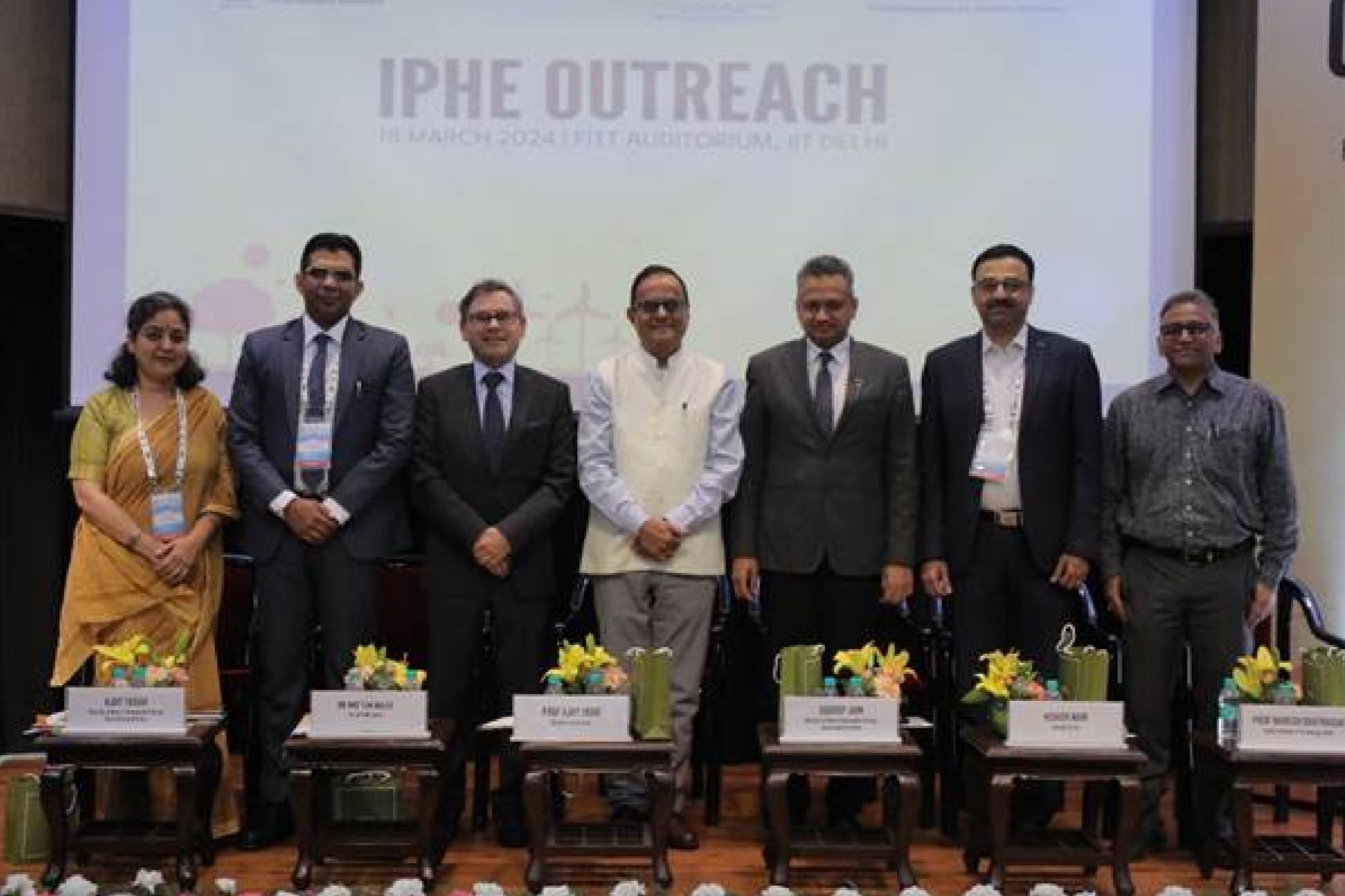New Delhi hosts 41st IPHE meeting focusing on Green hydrogen innovation
By EPR Magazine Editorial March 19, 2024 1:43 pm IST
By EPR Magazine Editorial March 19, 2024 1:43 pm IST

Day one stresses R&D’s role, urges cleaner, economical hydrogen – government advisor.
The 41st Steering Committee Meeting of the International Partnership for Hydrogen and Fuel Cells in the Economy (IPHE) is underway in New Delhi, India from March 18 to 22, 2024.
The first day, organised as IPHE Academic Outreach at IIT Delhi on March 18, 2024, saw conference delegates providing valuable insights into the future of hydrogen and fuel cell technologies.
During the inaugural session, Prof. Ajay Sood, the Principal Scientific Advisor of the Government of India, noted that while hydrogen technology is not new, collaborative efforts are needed to make it more economical and cleaner. He stressed the importance of skill development and research and development (R&D) in the sector, mentioning that various ministries besides the Ministry of New & Renewable Energy are also working towards the adoption of Green Hydrogen. He highlighted the five major areas of work in the hydrogen value chain: Production, Storage, Transportation, Distribution, and Consumption.
Sudeep Jain, Additional Secretary of the Ministry of New & Renewable Energy, emphasised the importance and challenges of climate change. He stressed the necessity for collaboration and partnership between academia and research institutes to facilitate energy transition and the development of the hydrogen sector. He emphasised the need to move away from grey hydrogen towards a larger share of green hydrogen.
Noe Van Hulst, Vice-Chairperson of IPHE, referred to India as an economic powerhouse and a decisive actor in shaping the clean energy future. He emphasised the need for skills, educational outreach, and research and innovation in shaping the future of Clean Hydrogen, highlighting the role of academia in this regard.
Prof. Naresh Bhatnagar, Dean (R&D) of the Indian Institute of Technology Delhi, highlighted IIT Delhi’s involvement in hydrogen-powered vehicle R&D for the past two decades. He mentioned the institute’s undergraduate, masters, and PhD-level courses on various subjects in energy systems and its research on high-pressure storage in 750-bar Hydrogen cylinders.Kishor Nair, Chief Executive Officer of Avaada Group, discussed India’s and other countries’ initiatives towards Energy Transition and their Net Zero commitments. He urged academia, research, and innovation fellows to contribute technology ideas to make hydrogen production, storage, transportation, and applications more efficient and cost-effective.
Ajay Yadav, Joint Secretary of the Ministry of New & Renewable Energy, emphasised the importance of Green Hydrogen as an alternative fuel for the future and highlighted the steps taken by the Government of India to promote green hydrogen under the National Green Hydrogen Mission.
The event also included engaging activities such as poster presentations and a quiz competition, culminating in the announcement and prize distribution to three winners in each competition.
The IPHE Academic Outreach also featured two insightful panel discussions. The first panel discussion, titled “Empowering Expertise: Cultivating Skill Development in the Clean/Green Hydrogen Arena,” focused on developing the knowledge and skills necessary to thrive in the clean/green hydrogen sector. The panel highlighted the need for skilled personnel in the field of Green Hydrogen, requiring different sets of safety, security, and regulatory standards. The panel also emphasised the need for new skill interventions for thematic areas and hands-on training for the green hydrogen sector.
The second panel discussion, titled “Unveiling the Future: Clean/Green Hydrogen Technologies and Its Transformative Applications,” explored the frontiers of clean/green hydrogen research and innovation, discussing its transformative potential across various industries. The panel highlighted the need to reduce the costs of production, storage, transportation, and consumption of hydrogen through technological improvements, efficient production/utilisation through R&D, and increasing demand through regulatory frameworks.
We use cookies to personalize your experience. By continuing to visit this website you agree to our Terms & Conditions, Privacy Policy and Cookie Policy.